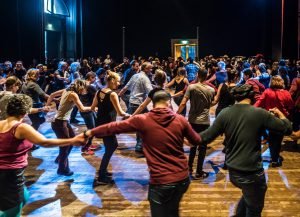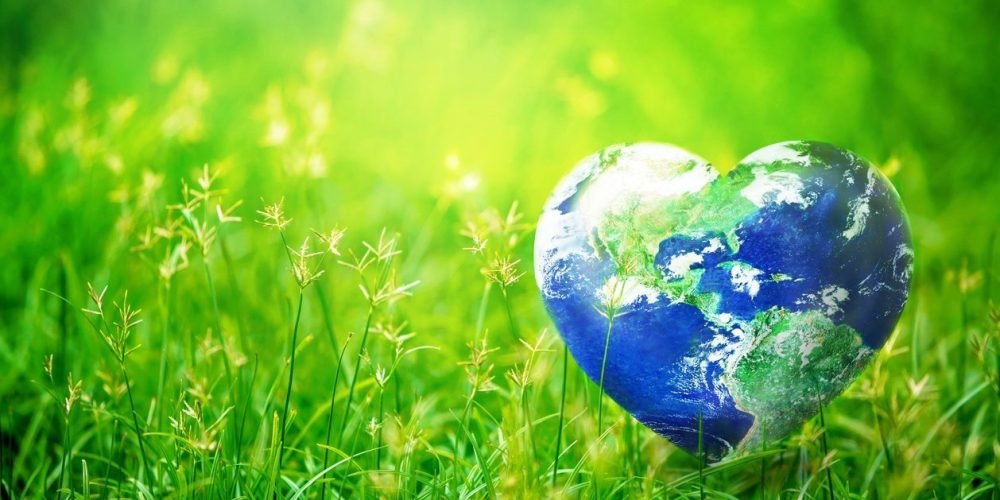{Pharma Leadership in India} What lockdown loneliness taught me about climate change
A fast-changing world can be a lonely place. But can isolation during the pandemic give us clues about how to overcome the slow-burning crisis of climate change?
Giacomo is rolling pasta to make ravioli, his movements casual but impeccable, as if generations of none are watching over him. He’s telling me about his day, his voice grainy, his face slightly blurry on my screen. He is speaking from the Italian countryside, on the tenth day of national lockdown due to the coronavirus epidemic, and I am calling from Delhi. In two days, India will be in full lockdown too.
Contrary to the popular narrative about Italians abroad, I’ve never been good at calling home since I moved away eight years ago, and I’ve never felt lonely or nostalgic. Spending so much time on video calls discussing pasta and the best sourdough starter recipe with my childhood friend is out of character. Not that I feel lonely, I tell myself. I am self-isolating, as per government rules, with my husband and our flat-mate, and the days go by in a flurry of board games, Netflix and homemade meals.
But for some reason I can’t put my finger on, I know I would feel lost without these long calls with my friends back home, who I feel share my same dread in the face of our collapsing world. This global health crisis has brought into sharper focus something I have been quietly dealing with for much longer than the past few weeks I have spent at home.
What I feel now, this fear of the unknown, resonates with that sense of subtle, ever-present apprehension about the new world that climate change is shaping. Our present environment is changing irreparably, and with it the course of our history, the stories and traditions we’ll pass on to our children.
A systemic collapse of even bigger proportions than the current pandemic remains mostly unacknowledged, even as it touches our daily lives. My hometown of Bologna, in northern Italy, used to enjoy mild summers, but now experiences brutal heat waves nearly every year. Under its traditional, heat-trapping red roofs, flats typically have no fans or AC units, both of which are ubiquitous in middle-class homes here in Delhi. Regular extreme heat is a new phenomenon for Southern Europe and it costs lives every year.
Like our existence in the throes of a global pandemic, life under climate change will never be “a new normal”. Humans can adapt to this uncharted future, but as an individual I struggle to put my feelings about it into words because the language to describe it is still being invented. And for a long time that made the warming planet around me feel like a very lonely place.
Renée Lertzman, a psychologist who studies the intersection of human experience, climate and environment, tells me that, ironically, I am not alone. “Many people are feeling extremely lonely in relation to their experience of these events,” she says. “Often we presume that we’re the only ones feeling this way. It’s a natural tendency, we personalise our experience, and we somehow think it’s about us.”
No one told me at any point to be more positive or more hopeful. And surprisingly, I found myself feeling better – Renée Lertzman
In a recent TED talk, Lertzman mentions her first year in college where she took environmental studies, “basically a semester of really bad news about all the ways that humans have profoundly damaged our beautiful Earth”. She felt like she “had been dropped into a dark tunnel, given no tools to get out and yet expected to carry on with my everyday life as if things were normal”.
She almost dropped out of university, but then decided to enrol in a field study in California, where she went backpacking for two months with a small group of like-minded academics. This was the opportunity to open up about her feelings.
“No one told me at any point to be more positive or more hopeful,” she says. “And surprisingly, I found myself feeling better.” That was when it dawned on her that a better understanding of our feelings can become a first step towards meaningful climate action.
To me, Lertzman’s story sounds like a parable of how we can overcome the sense of loneliness that paralyses us in the face of seismic changes. There are topics that are not yet part of our social conventions, she tells me, so people avoid speaking about their experiences for fear of being judged or ostracised. For many, climate change is still one of these taboos. “That compounds the loneliness,” she says. “That’s why it’s really important that we have opportunities for people to name and acknowledge [their feelings] in a public, more open way.”
When I think of Greta Thunberg, who opened up about climate grief and anger in front of the world, I don’t think of her portrait on the cover of Time magazine. I remember her sitting quietly on the pavement, alone with a placard announcing the world’s first “climate strike”. How lonely she must have been then, and how transformative was her determination not to let that loneliness stop her.

Her message has helped people around the world face the stigma that is still associated with sharing their climate grief. In Sydney, Australia, holding a “climate emergency” sign seems to “seriously trigger people”, 19-year-old Patsy Islam-Parsons tells me. Together with teenagers from England, Scotland and Northern Ireland she runs the Twitter-based campaign Solo But Not Alone, which hopes to advance the climate cause in areas where awareness is still low and street demonstrations are rare. In her hometown, Islam-Parsons says that her activism is mostly met with scepticism and aggression. “[They say] we are brainwashed, that the science isn’t true, that we need coal or else we’ll be living in mud huts with no electricity, or just swear at me.”
Their online friendship, the group says, helps them remain focused on the cause and bridges the gap left by a sometimes hostile real-life community.
But Rob Hopkins, founder of the Transition Towns movement, which aims to reduce people’s carbon footprint through local community action, thinks that the antidote to what he describes as systemic loneliness cannot be found online.
“Having a Facebook community,” he says, “is not the same as having a community who will come around and help you if the roof blows off your house.”
We just pause and think about what the world will look like once the pandemic is over, what’s going to be lost forever and what we can do better in future
We have come to believe that an online community is a community because we were living in a time where the system was holding up, he says. “But now we are not living in a time like that anymore.” The Transition Towns network builds resilience to climate change by engaging people in projects that reduce their environmental footprint while fostering a sense of community. In 2013, the town of Totnes in the UK launched a behaviour-changing program called Transition Streets, which involved 450 households over the course of a year.
“The idea was for people to get together with their neighbours, and look at food, energy, water and more,” Hopkins says. “But when it came to collecting feedback, nobody mentioned their emissions, or the fact that they were saving about £600 ($750) a year.” Instead, everybody mentioned how connected they felt with their community, and how they knew they would get help in times of need. Seven years later, some of the project’s participants still meet regularly.
Today’s call with my friend Giacomo was tinged with nostalgia. Suddenly WhatsApp feels like a poor substitute for a walk in the sun or preparing dinner together in real life. This time, we just pause and think about what the world will look like once the pandemic is over, what’s going to be lost forever and what we can do better in future.
Maybe surviving the short-term isolation of this pandemic can teach us how to deal with the other systemic collapse looming ahead, and the sense of loneliness each crisis instils in us. Maybe some of that longing for closeness I express through endless video calls will stay with me as I face the other existential threat that unites us all.
No matter where you were born or how wealthy your family, this virus will change your life in some way.
Climate change will too, soon enough. But maybe thanks to this pandemic we will all emerge better equipped to listen to what our loneliness is telling us, and share it with others who are fighting the same battle.
BBC


